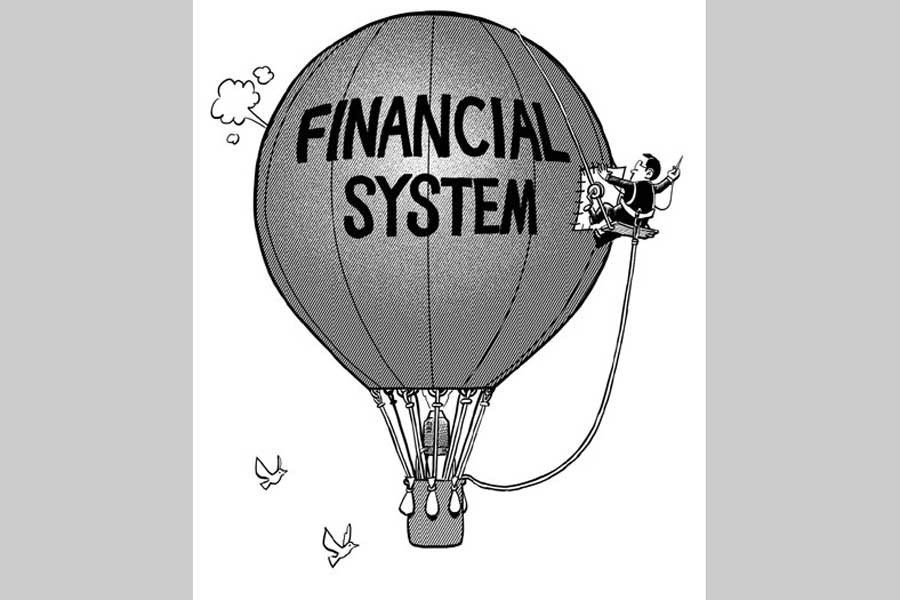That the country's financial sector is in troubled waters does hardly need any elaboration. The issue for consideration here is whether such troubles are transient in nature or represent sector-specific systemic problem, both of which are, however, not unique for any particular country. Transient troubles call for a therapeutic treatment; systematic problems call for deep-seated structural reforms. Given the sensitivity of the issue, it will be foolhardy to jump in a definitive statement about the current state of affairs in the financial sector of Bangladesh, without making an in-depth scrutiny, analysis or study of all its relevant aspects. The constitution of a banking commission, manned by experts, having integrity and probity, will be a proper step to examine the problems that have been dogging the sector and to a help fix them accordingly. The authorities concerned should consider the matter on a priority basis, in view of multi-dimensional concerns, bordering on, what the media reports say, a 'panicky situation' that is now prevailing among a cross-section of stakeholders, on real or perceived grounds. This is really an unsavoury situation.
The country needs a well-functioning financial sector to navigate its course to a high-growth trajectory and to achieve its much-coveted goal of achieving the status of a mid-middle income economy (MMIC). If its banks and non-banking financial institutions remain under stresses and strains, they will in no way be able to discharge their functional roles as effective financial intermediaries and, thus, as catalysts for inclusive growth. A high level of non-performing loans (NPLs) that are still swelling, illustrates amply well how the banks and non-banking financial institutions are hamstrung in their operational activities, making it all the more challenging for them to properly recycle their funds. The growing pressures for hiking their deposit and lending rates are a worrisome development. Liquidity constraints on the part of a good number of banks are also disconcerting. There is heavy concentration of credits among 'too large' borrowers whose number is very limited. Access to funds on the part of small borrowers is becoming thinner under the circumstances. Uneven competition among the financial institutions to attract funds and to lure large borrowers, irrespective of their track records in servicing their existing loans, by all possible ways, fair or foul, is further compounding the problems. The entry of new financial institutions into the market, on political and other grounds, in a situation where existing ones are finding it quite difficult to keep them in proper shape has only aggravated the situation. Time has come to consider whether mergers & acquisitions can, perhaps, be a recipe for fixing such problems.
Meanwhile, the country's banking or, overall, financial sector is faced with myriad troubles at an inopportune moment. The economy has been experiencing a fresh wave of inflationary pressures for quite sometime. Remittance inflows are decelerating. So are its exports against surging imports. The course of exchange rate movements remains uncertain. The revenue earnings of the government are trailing, to a marked extent, behind the projected level. Investments, in both public and private sectors, are yet not up to the mark, in real terms. All such developments have a strong bearing on the activities in the banking sector.
All such developments that have direct and indirect implications for the financial sector, are unpropitious. A malfunctioning redress mechanism to recover the 'dud' money through the existing legal process has added to the woes of the banks. A hefty amount of over Taka 1.70 trillion of different banks, as reported in this paper last Saturday, have thus remained stuck in about 0.13 million money suits. Extra-ordinary delays in finalisation of proceedings and settlement of cases that are filed with Artha Rin Adalat (Money Loan Court), coupled with defaulters recourse to sleazy, devious means to procrastinate the process, has created a messy situation.
The problems of the financial sector have to be identified very clearly so that such actions match well the needs of the time. Setting up of a high-powered Banking Commission deserves attention for this purpose. Its recommendations, based on the stark ground realities, should carry weight. And the government must have a strong political will do all the needful to give effect to such well-considered recommendations. The sooner, the better.


